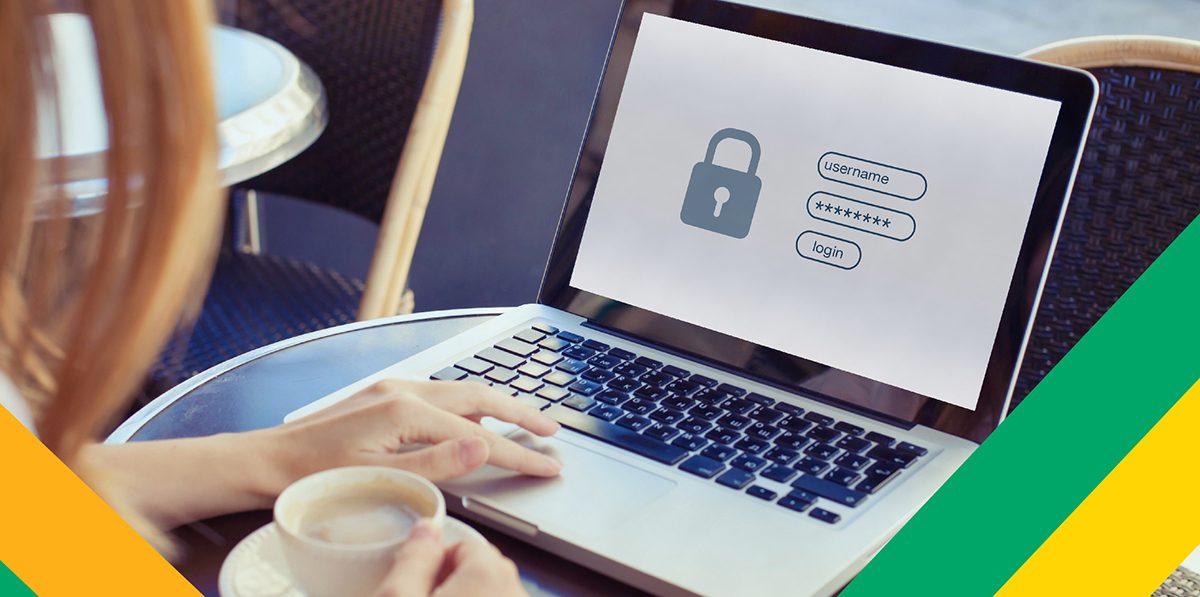With 21st century consumers living so much of their lives and conducting so much of their business online, cybersecurity has become an increasingly important day-to-day concern for most Americans. And the statistics show plenty of good reason to take added precaution when it comes to protecting your personal information on the internet.
Consider these eye-opening numbers:
- Every minute, $1.14 million is lost worldwide to cybercrime.
- The global costs of cybercrime are predicted to hit nearly $10.5 trillion annually by 2025 — a considerably larger price tag than that of all the damage caused by natural disasters each year.
- Roughly 1.4 million cases of identity theft were reported to the FTC in 2020 — double the number of cases seen in 2019. (Of course, many of the 2020 cases involved online ID theft, and large portions were related to false unemployment claims and other crimes targeting pandemic-relief funds.)
- Malware proliferation increased by over 350% in 2020, while ransomware numbers saw a 435% jump over the numbers seen in 2019.
- As of January 2021, Google had registered more than 2 million phishing sites on the internet.
- Survey results indicate that about 1 in 5 Americans have experienced a ransomware attack on a personal or work device.
7 top tips for staying safer online
While today’s cybercrime risks are certainly abundant, consumers can take a range of steps to protect themselves and their information. Consider these seven leading (and easy-to-implement) ways that you can reduce your risk of falling victim to hacking or other cyberattacks:
- Stay on top of software updates: Cybercriminals are constantly developing new ways to steal consumers’ money and personal information. And to protect against their evolving tactics, software and application developers provide regular, security-boosting updates to their codes and platforms. By updating your devices’ applications and software as soon as possible when new versions and updates become available, you can make sure that your devices have the most up-to-date protections against the latest cybercrime iterations in place.
- Use strong and varying passwords: Sure, “password123” is an easy password to remember — but it’s also an easy password for cybercriminals to guess. Further, when you use the same password across multiple online accounts, cybercriminals can gain the key to a range of your personal accounts when just one account is compromised via something like a data breach.
To make your passwords harder for ill-intentioned hackers to crack, consider employing these tactics:
– Avoid using personal info such as birthdays or pets’ names in your passwords, as cybercriminals can glean this info from publicly accessible sources such as social media, then use it when trying to access your accounts.
– Employ long passwords that use hard-to-guess phrases rather than single words.
– To add complexity to your passwords, use numbers in them, along with a mix of lowercase and uppercase letters, as well as special characters such as underscores and exclamation points.
– Refrain from writing your passwords down for malicious actors to find, or sending passwords in emails, which run the risk of being breached by unwelcome intruders.
– Use different passwords for each of your different online accounts — and especially ones you use for financial services or ones where financial information like your credit card numbers may be stored.
– Change your passwords regularly — experts recommend doing this every three to four months.
– Consider employing a trusted password manager, which can remember long and complicated (and therefore highly secure) passwords for you, all while keeping them protected from bad actors. - When available, opt for multi-factor authentication: To boost security levels, many online accounts will offer multi-factor authentication. This powerful tool employs added steps to verify users’ identification such as texting or emailing unique codes that expire quickly, then requiring they be entered before granting account access. When you see this option available for your online accounts, taking advantage can greatly decrease your risks of any unwanted account intrusion.
- Employ anti-virus protection and firewalls: Anti-virus software is created specifically to protect your digital devices against viruses, hacks, and other unwanted threats and intrusions. And by installing a reputable anti-virus application and keeping it regularly updated, you can make yourself a much tougher target for cybercriminals and keep your personal information safer. In addition, by employing a firewall, a security system that monitors internet traffic going into, out of or moving within a private digital network, users can prevent unwanted network access — cutting off a common access point used by cybercriminals to steal information.
- Be aware of and on the lookout for phishing attempts: Phishing scams attempt to trick unsuspecting internet users into turning over their personal (and often financial) details by sending them fake emails that appear to be from legitimate businesses or organizations. They’ll often include links to web pages that are also fake, and that also attempt to look like the real thing.
Two of the best protections against phishing are awareness and alertness, as phishing emails will often give themselves away with misspelled words, improper grammar usage and bad punctuation. Consumers can also spot phishing scams by double-checking the links in any suspicious emails they receive before clicking through on them. The destination websites will often feature a slight misspelling of a legitimate business’s web address, so be sure to review them carefully. Also, when you hover your cursor over a hyperlink in an email, most email browsers will display the link’s true online destination — so don’t click through when the destination address doesn’t match that of the legitimate organization’s website.Further, anytime a business or other organization emails or texts seeking payment or other personal details, it’s never a bad idea to contact the institution directly to confirm the legitimacy of the request before taking any further action. - Avoid banking on public Wi-Fi networks: Public Wi-Fi can be a big help when you need to get things done online on the go. But when using a publicly available Wi-Fi network, there’s no way to be certain who’s controlling the network, who else is on it or that the connection hasn’t been compromised in some way. This makes the risk level for using these networks much higher than on a trusted home or business network, with some of the dangers of using public Wi-Fi including threats like unwanted monitoring or access via man-in-the-middle attacks, malicious hotspots, malware and spyware.For all of these reasons, it’s wise to avoid using public networks for any online activities that might involve providing or viewing any personal or sensitive information, such as accessing any financial accounts. Instead, it’s best to access your online or mobile banking services from home or the office, or to instead use your cellular connection for these purposes when out and about by turning off your device’s Wi-Fi before logging on.
- Set up banking and credit card alerts if available: It’s smart to keep a close eye on all of your bank and credit card accounts, regularly reviewing them for any unfamiliar activity and/or transactions. And to help you keep an even closer eye on them, many banks and other providers of financial services will allow users to set up automatic alerts that let them know when specified transactions such as withdrawals or large purchases take place. Other account activities that alerts can tip you off to — often immediately — include outgoing wire transfers, failed login attempts, password changes, and the addition of new payees to any online bill pay accounts.
Proudly serving South Carolina since 1933, Arthur State Bank offers accounts and services to meet a variety of financial needs. To help you achieve all your financial goals, the bank offers in-person service as well as a range of convenient digital solutions. To learn how Arthur State Bank can help you with banking needs ranging from checking and savings to retirement accounts, mortgages, other personal loans and more, visit arthurstatebank.com.






















